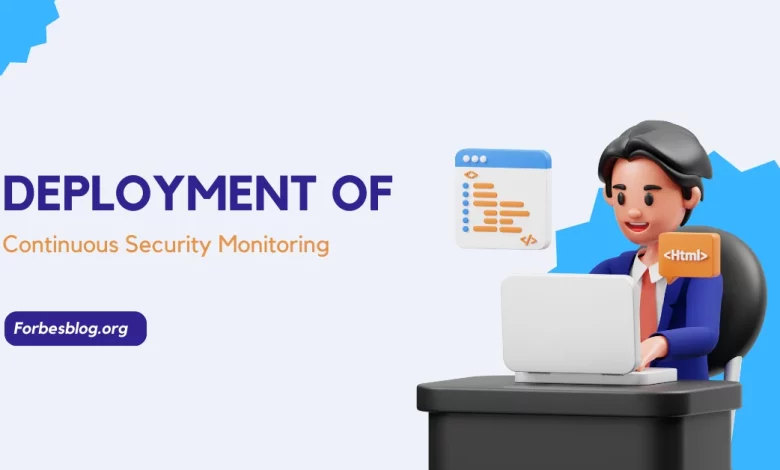Ethical Considerations in the Development and Deployment of Continuous Security Monitoring

In today’s fast-paced world, companies are trying to keep their digital framework and workers’ data safe. Increased cybersecurity threats have led them to use advanced tools and software systems to maintain security. One of the most common is the growing use of continuous security monitoring tools by different firms and organizations.
Nowadays, companies are increasingly relying on these security tools. Therefore, you need to delve into the ethical dimensions surrounding these tools and other similar advanced technologies. Ethical considerations are imperative in this case as they ensure that the data is private and individual rights are respected.
Today, we will tell you about some significant ethical considerations. You need to go through them to ensure that your firm’s security monitoring tools respect your workers’ rights and privacy. Let’s delve into the details of these considerations without further ado.
Table of Contents
Balancing Security and Privacy
Continuous security monitoring tools work on a straightforward mechanism. These tools collect a lot of data from your firm or organization, analyze it, and detect potential threats. Even your workers’ data may also be accessed by it to identify and mitigate phishing attacks or insider threats.
However, you must ensure that the security monitoring tool does not avoid privacy when focusing on security. The privacy of your workers is as important as security. Therefore, try to balance security and privacy when using these tools.
Transparency
One of the most important ethical considerations you must focus on is transparency. This should never be neglected when using a continuous security monitoring tool to identify and mitigate potential threats or risks. Users and workers in your firm or organization must be aware of all types of monitoring tasks performed by this tool. If it’s monitoring their data, they have the right to be aware of it.
No Discrimination
Discrimination or biases can have a bad impact on a firm or organization. It will directly lead to grouping that will affect the productivity of your workers. It will lead to ethical concerns among individuals as well. Therefore, ethical deployment of security monitoring software demands that there should be no discrimination or biases. Otherwise, the tool will target a specific group of employees only. The productivity of that group will be reduced. At the same time, these biases can lead to insider threats as well.
Data Retention
Nowadays, ethical considerations have extended to data retention and deletion as well. The firm should have clear policies on how long data can be retained. Similarly, a policy regarding the circumstances under which data deletion will take place should also be made. These retention and deletion policies must be visible to all your workers.
However, only doing so will not be enough. You also need to make sure that your implemented security monitoring software program understands these policies and followss them. It should align with ethical standards and privacy regulations as well.
Accountability
The Ethical development of continuous security monitoring software involves establishing an accountability and responsibility framework. The developers and then your organization must clearly describe the responsibilities of using this monitoring software. It will include accountability for security breaches, unintended consequences, and disrespect to privacy.
Ethical Audits
Continuous software monitoring tools may appear considering all the ethical aspects. However, you cannot rely only on what you see. Therefore, deep data analysis is also required. You must conduct thorough audits to ensure the ethical deployment of the software.
This audit will help you in identifying the major ethical problems. After identification, it also enables you to take proper steps to improve them. It will also help you understand the impact of monitoring tools on your workers.
Collaboration With Experts
When it comes to ethical development and deployment of continuous security monitoring software, you cannot do everything independently. At the start, you need assistance from some professionals as well. For this purpose, you can collaborate with some ethical experts. They will guide you about the ethical deployment of the tool and how you can conduct ethical audits.
Bottom Line
Now you know the primary ethical considerations of developing and deploying continuous security monitoring tools. Remember to align monitoring tools with social values and ethical norms.




